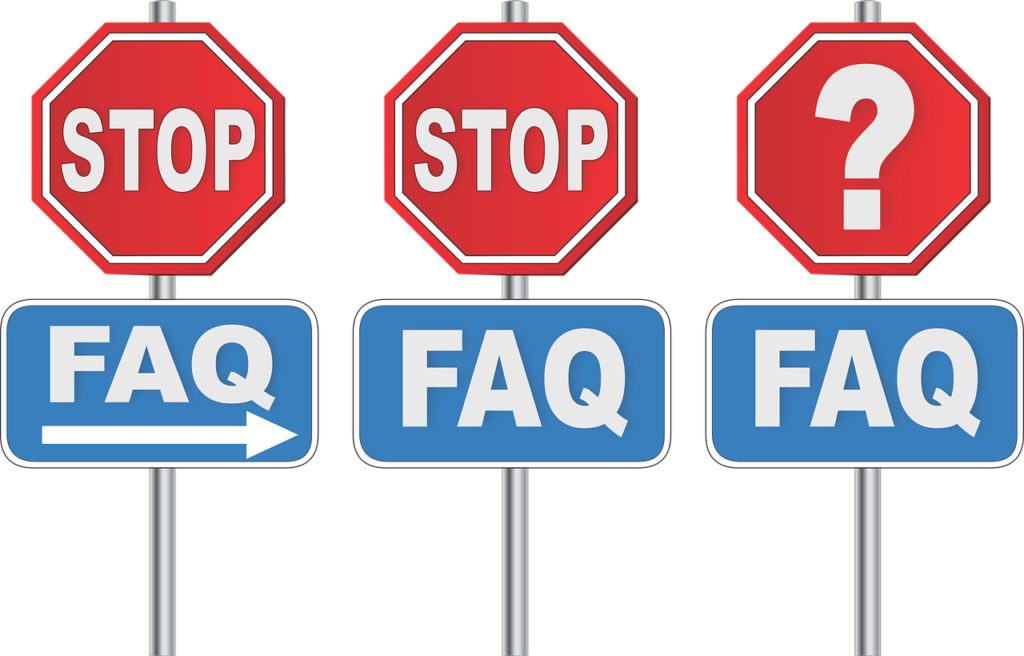You may have heard the phrase “SEO,” but you might not know what it stands for, or how it may benefit your company.
When somebody searches for terms associated with your business, you want your website to be one of the first few results they see. That’s where SEO comes in.
SEO is a process that can help your website rank higher on search engine results pages (SERPs).
Higher rankings in SERPs mean more visitors to your website, and more visitors mean more potential customers. With SEO, you can get more leads and sales from people who are already interested in what you have to offer.
This article will discuss the advantages of SEO and how it can help expand your business.
Mobile SEO
More and more individuals are using their mobile devices to search the internet. If you want your website to be visible to mobile users, you need to optimize it for mobile.

What is Mobile SEO?
Mobile SEO is a process that ensures your website can be easily found and used on a mobile device. It is essential to help you reach a larger audience and improve your website’s ranking in mobile search results.
Mobile SEO includes:
- Optimizing your website for mobile devices.
- Creating a mobile-friendly website design.
- Improving the user experience on your website.
Why is Mobile SEO Critical?
Mobile SEO is critical for several reasons.
First, more people use mobile devices to access the internet. There has been a significant increase in people owning a mobile device and operating it for daily living, especially since the pandemic started.
If your website is not optimized for mobile devices, you could be missing out on a considerable portion of your potential audience.
Additionally, mobile devices have different screen sizes and capabilities than desktop computers, so your website needs to be designed to account for these differences.
Finally, Google has stated that they are now using mobile-friendliness as a ranking factor in their search algorithm. This signifies that if your website is not optimized for mobile devices, it could negatively impact your search engine rankings.
In short, Mobile SEO is critical for any business that wants to succeed in the digital age.
What are the Benefits of Mobile SEO?
There are many benefits of mobile SEO, including:
- Reaching a larger audience: More people use mobile devices to access the internet than before.
- Improving your website’s ranking in mobile search results: Mobile SEO can help you improve your website’s ranking in mobile search results, making it easier for people to find your website.
- Improving the user experience on your website: Mobile SEO can help you improve the user experience on your website, which makes it a lot easier for people to use your website on a mobile device.
Keyword Research for Mobile With SEMrush
If you’re looking to enhance your mobile SEO, one of the best places to start is with keyword research. After all, if you want to rank higher in SERPs, you need to know what keywords to target.
One of the most promising tools for keyword research is SEMrush.
With its help, you can not only find the right keywords for your mobile SEO strategy but also track your progress and see how your rankings are changing over time.
Here’s a quick guide to using SEMrush for mobile keyword research:
- First, create a free account and log in to SEMrush.
- Click on “Tools” in the top menu and select “Keyword Research.”
- In the “Search for new keywords using” field, enter your website URL.
- Check the “Only show ideas closely related to my search terms” box.
- In the “Device” drop-down menu, select “Mobile.”
- Click on the “Search” button.
SEMRush will directly deliver you a list of keywords that you can target for your mobile SEO efforts. You can utilize the Keyword Magic Tool to understand better how well a specific keyword will perform.
Is it worth your capital to invest in mobile SEO?
Mobile SEO is becoming increasingly important as more and more people use mobile devices to access the internet.
If you want to reach a larger audience and improve your website’s ranking in mobile search results, investing in mobile SEO is worth your money.
What are the Most Suitable Techniques for Mobile SEO?
There are many best practices for mobile SEO, including:
- Optimizing your website for mobile devices: Make sure your website can be easily found and used on mobile devices. This includes optimizing your website design, content, and navigation for mobile users.
- Use responsive design: Responsive design is a type of web design that allows your website to adjust to the monitor size of different devices. This is necessary because it ensures that you can easily use your website on desktop and mobile devices.
- Use mobile-friendly content: Make sure your website’s content is easy to read and navigate on mobile devices. This includes using short paragraphs, easy-to-understand language, and large font sizes.
- Optimize your photographs for mobile devices: Make sure your website’s images are optimized for mobile devices. This comprises using smaller file sizes and adding alt text to your pictures.
- Use mobile-friendly URLs: Make sure your website’s URLs are easy to read and use on mobile devices. This means using shorter URLs and avoiding using complex characters.
- Implement accelerated mobile pages (AMP): AMP is a code that allows your website to load faster on mobile devices. This is important because it helps improve your website’s speed and performance on mobile devices.
These are just a few of the many best practices for mobile SEO. By following these most suitable techniques, you can help ensure that your website is optimized for mobile devices and can be easily found and used by your target audience.
Mobile Application Marketing
There’s no question that mobile apps are hugely popular. Studies show that the average person spends more than two hours using apps on their phone every day. However, with more than a million apps available, how can you ensure that yours stands out from the crowd?
The key is practical mobile app marketing. Mobile application marketing starts with knowing your audience.
Who are you trying to reach? What needs do they have that your app can address? Once you comprehend your ideal audience, you can start developing a marketing strategy to reach them where they are.
This strategy might mean advertising on specific websites or social media platforms or creating targeted content that speaks to their needs.
Investing in mobile app marketing is a smart move for any business that wants to stay relevant and connected with its customers. With the right strategy, you can ensure that your app gets seen by the people who are most likely to use it and benefit from it.
Accelerated Mobile Pages (AMP)
Have you ever been frustrated by how slowly a web page loads on your phone? If so, you’re not alone.
People are far more likely to abandon a website if it takes more than a few seconds to load. Fortunately, there’s a solution: Accelerated Mobile Pages, or AMP.
AMP is an open-source technology that seeks to improve the performance of mobile web pages. By stripping down unnecessary code and increasing caching, AMP pages can load up to four times faster than traditional web pages.
And because speed is a significant ranking factor for mobile search results, AMP can also help improve your website’s search engine optimization. So if you’re looking for a way to improve your mobile web performance, AMP is worth considering.
Industry & Platform Specific SEO
There are many different ways to optimize your website for search engines, and the best approach depends on your industry and the platforms you use.
However, there are a few key things to keep in mind when optimizing your website for SEO.
International Sites
If you have a website targeting multiple countries, it is vital to ensure that your website is appropriately optimized for each country.
This includes ensuring that your website is hosted in the appropriate country, using the correct language and currency, and providing relevant content to your target country.
Before optimizing for foreign markets, there are a few things to think about.
When boosting your company into untouched markets, it’s essential to do your research first. This includes understanding the culture of the country, as well as the language and customs.
You’ll also want to make sure you have a good grasp of the legal and financial systems and plan how you’ll reach your target audience.
Options for structuring international websites for SEO
Depending on your industry and platforms, there are a few different ways to optimize your website for international search engines. In general, however, there are a few key things to keep in mind when optimizing your website for SEO.
One of the most important things to consider is the language and currency you use on your website. If you target a country where English is not the primary language, you must ensure that your website is translated into the correct language.
In addition, you’ll need to make sure that you are using the correct currency for the country you are targeting. Another necessary element to keep in mind when optimizing your website for international search engines is your target region.
If you are targeting a specific country or region, it is vital to ensure that your website is correctly optimized for that region.
This includes ensuring that your website is hosted in the appropriate country, using the correct language and currency, and providing relevant content to your target region.
How to do keyword research for international SEO
International SEO is a complex process that can be difficult to master.
One of the essential aspects of international SEO is keyword research. To discover the perfect keywords for your site, you need to understand your target audience and the search engines they use. You also need to know which keywords have the highest potential for traffic and conversions.
Here are a few tips on how to do keyword research for international SEO:
- Know your target audience
Before you can start researching keywords, you need to know your target audience. What language do they speak? Which country are they in? What are their interests?
- Use the right tools
You can use many different tools to research keywords, including Google AdWords Keyword Planner and Google Trends. These tools will help you understand how people search for your product or service.
- Consider keyword difficulty
When choosing keywords, you need to consider keyword difficulty. This is the likelihood that your site will rank for a particular keyword.
You can use an online tool like Moz Keyword Difficulty Tool to research the difficulty of keywords.
- Target long-tail keywords
Long-tail keywords are a set of words that are more specific and less competitive. They tend to convert better than short-tail keywords because they are more targeted.
An instance of a long-tail keyword is “red shoes for women.” This keyword phrase is more specific than just “shoes,” Therefore, it is easier to compete and rank for.
- Use local keywords
If you are targeting a specific country, you should use local keywords. These keywords include the country name, such as “Italian restaurants in New York.”
Using local keywords will help you rank higher in search results for people in your target country.
- Monitor your progress
Once you have implemented your international SEO strategy, it is crucial to monitor your progress. You can use tools like Google Analytics to track your traffic and keywords. This tool will help you pinpoint which keywords work and which ones need to be tweaked.
International SEO is a complex process, though keyword research is a vital part of it. By minding these recommendations, you can ensure that you choose the right keywords for your site.
Technical signals for international SEO
There are several technical signals that you can use to improve your site for international SEO. Here are a few of them:
- Use the correct language tags
To serve accurate content to users in different countries, you need to use the correct language tags. This method adds the “lang” attribute to your HTML code.
- Define your target country
You can use the <meta> tag to define your target country. This is the country that you want your site to be associated with. For example, if you target users in the United Kingdom, you would specifically use the UK tag to signal the crawlers you are aiming for in the UK.
- Use Hreflang on your website
Hreflang tags notify search engines and crawlers which version of your site is intended for which audience. These tags are crucial for multilingual sites. For example, if you have a French version of your site, you would use the following:
<link rel=”alternate” hreflang=”fr” href=”https://www.aokmarketing.com/fr”>
- Use a country-specific domain name
If you want to target a specific country, you should use a country-specific domain name. For example, if you target the United Kingdom, you could use the .co.UK domain. This tactic will help you rank higher in search results for people in your target country.
- Use the correct HTML charset
If you are using a foreign language on your site, you need to use the correct charset. This is the character encoding used to display the text on your site.
Geotargeting for international SEO
Geo-targeting is the process of telling search engines where your site is targeted. You can use the <meta> tag to geotarget your site.
This is the process of telling search engines where your site is targeted.
For example, if you are targeting the United Kingdom, you would use the following tag:
<meta name=”geo.region” content=”GB”>
<meta name=”geo.placename” content=”London”>
<meta name=”geo.position” content=”51.5171;-0.1062″>
<meta name=”ICBM” content=”51.5171, -0.1062″>
Internal linking for international SEO
Internal SEO linking is the process of linking to other pages on your site. This method is vital for international SEO because it helps search engines understand the structure of your site.
It also helps users navigate your site. You should use internal linking to:
- allow search engines to understand the structure of your site
- help users navigate your site
- improve the user experience
- improve your SEO
When linking to other pages on your site, you should use keyword-rich anchor text. This will help search engines understand what the page is about. For instance, if you are linking to a page about French wines, you could use the following anchor text:
– French wines
– red wine
– white wine
– rose wine
– Champagne
Crawling & Indexing
Crawling and indexing are two crucial concepts in SEO.
Crawling is the method and technique that search engines use to discover new and updated content. Indexing is the approach of adding content to a search engine’s database.
For your content to be indexed, it must first be crawled by a search engine. Once your content is crawled, it will be added to the search engine’s database and appear in search results.
Many factors can influence how quickly your content is crawled and indexed. These include the freshness of your content, the frequency of updates, and the popularity of your site.
If you want to ensure that your content is crawled and indexed quickly, there are a few things you can do:
- Publish fresh and original content.
- Update your content regularly.
- Promote your website through social media and other channels.
- Make sure your website is well-liked by search engines.
- Use sitemaps and submit them to search engines.
- Use proper tagging and structure your website’s code.
- Monitor your website’s crawl rate and indexation.
- Make sure your website is mobile-friendly.
- Use HTTPS.
- Implement AMP for your website.
Indexable Pages
Indexable pages are the pages on your website that search engines can index. These are the pages that will appear in search results.
Not all pages on a website are indexable. Some pages, such as privacy policy pages and terms of use pages, are not meant to be indexed by search engines.
To ensure that your website’s pages are indexable, there are a few things you can do:
- Use standard HTML tags.
- Use descriptive titles and metatags.
- Use keyword-rich anchor text.
- Avoid using Flash or Java-based content.
- Avoid using frames.
- Avoid using no-index tags.
- Monitor your website’s crawl rate.
- Monitor your website’s indexation.
- Use Google Search Console to submit your sitemap.
- Use a robots.txt file to control which pages are indexed.
SEO for Ecommerce Sites
If you have an e-commerce website, consider a few extra things to optimize your site correctly.
First, you need to ensure that your product pages are optimized for both search engines and conversion. This step means including relevant keywords in your title tags and meta descriptions and adding high-quality images and product descriptions.
You should also ensure that your checkout process is optimized for conversion, which means having a straightforward and easy-to-use checkout process and providing several different payment options.
Finally, you need to make sure that your website is mobile-friendly. This signifies having a responsive design optimized for mobile devices.
Magento Websites
Magento websites are the perfect solution for businesses looking to take their online presence to the next level. Magento is also an open-source medium that provides businesses with a flexible and scalable eCommerce solution.
Magento websites are packed with features that will help businesses grow their online sales.
With Magento, businesses can use advanced features such as product filtering, abandoned cart recovery, and multi-store management. Magento websites are also mobile-friendly and can be customized to match a business’s branding.
However, there are many disadvantages to using Magento for your eCommerce website. First, Magento is a fairly complex platform and can be challenging to use for beginners. Additionally, Magento websites can be slow and resource-intensive.
If you are searching for a straightforward and uncomplicated eCommerce solution, Magento is probably not the right platform for you.
Shopify Websites
Shopify is an online platform for businesses of all sizes to create an online store.
Shopify is an excellent alternative for companies looking to get started with e-commerce or companies that want to move their existing online store to a more user-friendly platform.
What are the benefits of using Shopify?
Shopify offers users some benefits, including:
- A customizable platform: Shopify offers users a highly customizable platform. Online businesses can select from many themes and add their logo, colors, and branding.
- An easy-to-use checkout process: Shopify’s checkout process is designed to be user-friendly and easy to use.
- A wide range of features: Shopify offers businesses a wide range of features, including a blog, an online storefront, and support for various payment methods.
Some potential drawbacks of using Shopify include:
- Limited control over some aspects of your store: While Shopify is highly customizable, there are some areas of your store that you will not be able to control. For example, you cannot customize Shopify’s checkout process.
- Shopify’s fees: While Shopify’s costs are generally lower than those of other e-commerce platforms, there are still some fees that businesses will need to pay, such as transaction fees and credit card processing fees.
Shopify is an excellent choice for businesses looking to start e-commerce or companies that want to move their existing online store to a more user-friendly platform.
Product & Category Page Tags
Product and category pages are two of the essential pages on an eCommerce website. These pages can have a significant impact on your website’s SEO.
Product tags are used to describe the products that you sell on your website. They are typically used to describe the product’s name, price, and other relevant information.
Product tags are essential for two reasons:
- They help search engines understand your product and match it with relevant searches.
- They can help improve your click-through rate (CTR) by making your listing more relevant and appealing to searchers. Category pages are used to group similar products.
For example, if you sell clothing on your website, you might have a category page for “men’s clothing” and another for “women’s clothing.”
Category pages are essential for two reasons:
- They help search engines understand the structure of your website and find new content.
- They can help improve your website’s navigation and make it easier for users to find the products they are looking for.
To ensure that your product and category pages are optimized for SEO, there are a few things you can do:
- Use descriptive and keyword-rich titles.
- Use relevant and high-quality images.
- Use keyword-rich tags and descriptions.
- Structure your website’s navigation in a way that is easy for users to understand.
- Use breadcrumbs on your website.
- Implement search filters on your website.
- Use canonical tags on your website.
- Monitor your website’s click-through rates.
- Monitor your website’s conversion rates.
- A/B test your product and category pages.
Robots.txt
Robots.txt is a text file web admins create to instruct web robots (typically search engine crawlers) to crawl and index pages on their website.
This file aims to control the indexing of your site by search engines. You can use it to prevent certain pages from getting indexed or to tell search engines where they can find your site’s XML sitemap.
Webmasters use robots.txt for two primary reasons:
- Discourage search engines from indexing all of the pages on their website.
- Tell search engines where they can find the XML sitemap for their website.
Robots.txt is not an effective way to keep confidential information off your website. If you want to keep something hidden, the best way to do it is not to put it on your website at all.
Sitemap.xml
A sitemap is a page file where you can document the web pages of your site to tell Google and other search engines about the organization of your site content.
Search engine web crawlers like Googlebot read this file to more intelligently crawl your site. A website sitemap is handy if:
- Your site has dynamic content that Googlebot can’t discover during its crawl.
- Your site has pages with content that you want Google to index but might not be discoverable by its normal crawling process.
- You have a large website with thousands or even millions of pages.
- You have a new website and want Google to find your site quickly.
Assembling and submitting a sitemap helps ensure that Google comprehends almost all the pages on your site, including URLs that may not be discoverable by Google’s normal crawling process.
In its simplest form, a sitemap is an XML file that lists URLs for a site and additional metadata about each URL.
It may include when it was last updated, how often it usually changes, and how important it is relative to other URLs on the site so that search engines can more intelligently crawl the site.
Javascript
JavaScript is a programming language that adds interactivity to your website (for instance, in the website or mobile games, responses when certain buttons are clicked, or data is entered in forms, dynamic styling, and animation).
If you want your website to be indexed by search engines, it’s essential to make sure that the search engine’s web crawlers execute your site’s JavaScript code.
One way to make sure that the search engine’s web crawlers execute your site’s JavaScript code is to use a pre-rendering solution, which renders your pages in the background and serves the resulting HTML to the search engine’s web crawlers.
If you use a pre-rendering solution, it’s crucial to also serve the original JavaScript code to the user’s browser so that they can interact with your website, which renders your pages in the browser and does the resulting HTML to the user.
URL Paths
The URL path is the part of the URL that comes after the hostname and before the query string.
For example, in the URL http://www.aokmarketing.com/path/to/page?query=string, the path is /path/to/page. The URL path is used to help identify the page that the user is requesting.
Query Strings
A query string is the part of a URL that comes after the path and before the fragment. The query string is used to help identify the resources that the user is requesting.
Fragments
A fragment is the part of a URL that comes after the query string. The element is used to help identify the part of the page that the user is requesting.
Canonicalization
Canonicalization is the process of creating a single, standard representation of a document or resource. This can be important when multiple versions of a document exist, as it can help ensure that users are viewing the most accurate version.
In addition, you can also use canonicalization for security purposes to help ensure that unauthorized users cannot access sensitive information.
When it comes to documents, canonicalization typically involves creating a single version of a document that includes all the essential information from all the other versions.
You can do this by combining all the different versions into one document or selecting one version as the canonical version and then providing links to the other versions.
Redirects
A redirect is a way to send users (and search engines) to a different URL than they initially requested.
There are several different redirects, each of which serves a diverse purpose. The most typical type of redirect is the 301 redirect, which permanently redirects one URL to another.
The 302 redirect is used to redirect one URL to another temporarily, and the the307 redirect is used to temporarily redirect one URL to another while preserving the original URL in the browser’s address bar.
The 308 redirect permanently redirects one URL to another while preserving the original URL in the browser’s address bar.
Blogging
Blogging is a wonderful way to connect with your audience and share your company’s story.
It’s also an effective way to improve your website’s SEO. When you blog, you’re creating new content that can be indexed by search engines and included in search results.
In addition, each time you publish a new blog post, you’re giving users a new reason to visit your website. And, if you include keywords in your blog posts, you’re giving search engines another way to identify your website and its content.
When it comes to SEO, blogging is a powerful tool that can help you improve your website’s ranking in search results.
Structured Data
Structured data is a standardized form for providing information about a page and its content. Search engines use structured data to understand the content on a page and provide richer search results.
For example, if you’re a recipe website, you can use structured data to provide information about your recipes, such as the ingredients, the cooking time, and the calorie count.
In addition to providing better search results, structured data can also help you win rich snippets, which are unique listings that include additional information about your website.
If you’re not familiar with structured data, we recommend checking out our beginners’ guide to structured data.
Reddit SEO
As you probably know, Reddit is a social news site where users submit links to content they find interesting. But what you may not be aware of is that Reddit can also be a great source of traffic for your website.
In this article, we’ll show you how to use Reddit for SEO purposes, and we’ll also give you some recommendations on how to make sure the Reddit community well receives your content.
If you are aiming to acquire traffic from Reddit, you need to make sure that your content is exciting and relevant to the site’s users. For this reason, it’s essential to do some research on what kinds of content are popular on Reddit before you start posting your links.
What is Reddit?
Reddit is a social website for news and entertainment where registered users can submit content in the form of either a link or a text (“self”) post. Other users then vote the submission “up” or “down,” determining its position on the site and front pages.
Posts or submissions with more ‘up-votes’ appear towards the top of their subreddit and, if they receive enough up-votes, ultimately on the site’s front page.
In addition to this, Reddit’s administrators spend considerable resources moderating the site.
Reddit – A Glossary of Terms
Before we get started, it’s essential to understand some of the basic terminology used on Reddit.
Here are some of the most noteworthy terms you need to know:
Upvote: When users upvote your content, they like it and think it’s worth reading.
Downvote: When users downvote your content, they don’t like it and think it’s not worth reading.
Karma: Karma is the number of upvotes minus the number of downvotes you have. The more karma you have, the more likely people are to see and upvote your content.
Subreddit: A subreddit is a specific topic or category on Reddit. For example, there’s a /r/SEO subreddit where users discuss SEO-related things.
Posting on Reddit
Once you’ve created an account and familiarized yourself with the basic terminology, it’s time to start posting on Reddit.
To send a new link or text post, click the “Submit a new link” or “Submit a new text post” button located in the right sidebar of any subreddit.
It will then take you to a page where you can enter your title, content, and any other relevant information. Once you’re finished, click the “Submit” button, and your post will be live for other users to see.
If you want to add a comment to an existing post, simply scroll down to the comments section and click the “add a comment” button. You can then enter your comment and hit the “Submit” button.
And that’s all there is to post on Reddit!
Now that you know the basics, it’s time to start participating in the community and sharing your own content. You might even find yourself on the front page one day with a little effort.
Why You Should Use Reddit in Your Digital Marketing Strategy
Reddit is one of the most widespread social news aggregators on the internet. It’s a great place to find interesting content, and it can also be used as a tool for digital marketing.
Here are four reasons you should use Reddit in your digital marketing strategy.
- Reddit has a large audience.
Over 234 million unique users on Reddit, and the site receives over 8 billion page views per month. That’s a lot of potential customers!
- Reddit is great for market research.
You can use Reddit to find out what people are talking about in your industry. Subscribe to relevant subreddits and read through the discussions.
You can also use Reddit’s search function to find specific threads about topics that interest you.
- Reddit is a great way to connect with customers.
You can use Reddit to answer customer questions, give product recommendations, and provide customer support. Subreddits are also a great place to find customer reviews and testimonials.
- Reddit can help you generate leads.
You can utilize Reddit to drive traffic to your website or blog. Simply post links to your content in relevant subreddits, including a compelling headline and description. You can also run ads on Reddit.
How to Market Your Business on Reddit: A Five-Step Guide
- Familiarize yourself with Reddit. Reddit is a social news and entertainment website where registered users submit content in links or text posts. Content is then voted up or down by other users, determining its position on the site’s front page.
- Create an account for your business. Your account should be separate from your personal account. Give your business account a recognizable name that reflects your brand or the products/services you offer.
- Find relevant subreddits. Explore for subreddits that are suitable to your business or industry. For example, if you’re a graphic designer, you might want to find the /r/design subreddit.
Thousands of subreddits cover a vast array of topics.
- Share helpful and compelling content. Once you’ve found relevant subreddits, it’s time to start sharing content. Don’t forget to focus on quality over quantity—it’s better to share a few well-written and helpful pieces than a bunch of mediocre ones.
- Monitor and respond to feedback. Be sure to keep an eye on any feedback you receive, positive or negative. Responding to feedback shows that you’re engaged with your audience and willing to listen to their suggestions.
You can market your business effectively on Reddit following these five simple steps! Remember to focus on quality content and be responsive to feedback, and you’ll be sure to find success.
Other Ways to Use Reddit in Your Marketing and SEO Strategy
You can use Reddit in several ways to help with your marketing and SEO strategy. Here are a few examples:
- Use Reddit to get feedback on new product ideas.
- Use Reddit to find new content ideas.
- Use Reddit to get feedback on your website or blog.
- Use Reddit to track down industry news.
- Use Reddit to find new link-building opportunities.
All of these strategies can be highly beneficial in helping you to reach your marketing and SEO goals. So what are you waiting for? Get started today!
Software as a service (SAAS)
Software used to be purchased in physical forms, like a CD or DVD in the past.
But now, there is a new way of buying and using Software- through Software as a Service (SAAS). SAAS is a type of subscription service that allows users to access and use Software over the internet.
This means you no longer have to wait for the Software to be shipped to you or worry about losing your Software if your computer crashes. Plus, SAAS is often much cheaper than buying traditional Software- since you only pay for what you use when you use it.
There are a ton of different companies that offer SAAS products, like Microsoft, Adobe, and Google. And there are SAAS products for just about everything, from accounting to website creation. If you’re not sure where to start, here are five of the most popular SAAS products that businesses use:
- Google Suite: Google Suite is a set of tools that includes Gmail, Google Docs, Sheets, Slides, and more. It’s perfect for businesses that need to collaborate on projects or share files easily.
- Adobe Creative Cloud: Adobe Creative Cloud is a set of tools for graphic designers, photographers, and other creative professionals. It includes apps like Photoshop, Illustrator, and InDesign.
- Microsoft Office 365: Microsoft Office 365 is a cloud-based version of the Microsoft Office Suite, including Word, Excel, PowerPoint, etc. It’s perfect for businesses that need to use familiar Microsoft products.
- Salesforce: Salesforce is a customer relationship management (CRM) tool businesses can use to track sales, customers, and deals.
- QuickBooks Online: QuickBooks Online is accounting software businesses can use to track income and expenses, create invoices, etc.
These are just a few of the most popular SAAS products businesses use. There are many more out there, so explore and find those that fit your needs!
SEO for SAAS Applications
SEO is a superb place to start when it comes to marketing your SAAS product.
Just like any other type of business, you need to make sure that your website is optimized for search engines so that people can find you.
Here are a few tips for optimizing your SAAS website for SEO:
- Do keyword research: Keyword research is essential for any website, but it’s crucial for SAAS websites. People often search for SAAS products using keywords like “software” or “app.” So make sure to include these keywords on your website, your titles and descriptions, and your content.
- Optimize your website for mobile: More and more people are using their smartphones to search for and use SAAS products. So it’s necessary to make sure that your website is optimized for mobile. This means having a responsive design, fast loading times, and easy navigation.
- Use social media: Social media can be a great way to promote your SAAS product. Create social media accounts for your business and share helpful content, like blog posts or tutorials. You can also use social media ads to target potential customers.
- Create a blog: A blog is a great way to show off your expertise and attract new visitors to your website. Write helpful and informative blog posts about topics related to your SAAS product. For example, if you offer accounting software, you could write a post about small business accounting tips.
- Make sure your website is safe and protected: Security is vital for any website, but it’s essential for SAAS websites. Your consumers need to rely on you so that their data will be safe when using your product, especially when product payments are involved.
So make sure to have a secure website by using SSL encryption and a security plugin.
Paid Advertising for SAAS
In addition to SEO, paid advertising can be a great way to market your SAAS product. There are a few different types of paid advertising that you can use, including pay-per-click (PPC) ads, display ads, and social media ads.
PPC ads are one of the most common types of paid advertising. They allow you to place ads on search engines like Google and other websites. When someone clicks on your ad, you pay a small fee.
Display ads are another type of paid advertising. They allow you to place banner ads on websites and apps. When someone sees your ad, you pay a small fee.
Social media ads are paid advertising that allows you to place ads on social media platforms like Facebook, Instagram, and Twitter. You pay a small fee when someone sees or interacts with your ad.
These are just a few of the most common types of paid advertising. There are many other options, so explore and find the ones that work best for your business.
Small Business SEO
If you’re a small business owner, you know how significant it is to get your website ranking high in the search engines. After all, most people don’t bother to look past the first few results when searching for something online.
That’s why it’s essential to do everything you can to optimize your site for the search engines. And one of the best ways to do that is by focusing on small business SEO.
What is small business SEO?
It’s the process of making your website more search engine friendly to rank higher on the results pages.
There are several things you can do to optimize your site for the search engines, but here are five of the most important things to focus on:
- Use keyword-rich titles and descriptions.
Make sure that your headings and descriptions include relevant keywords for your business. This will help your site show up when people search for those keywords.
- Optimize your website’s content.
Your website’s content should be relevant to your business and keyword-rich. This will help your site rank higher when people search for your keywords.
- Build backlinks to your website.
Backlinks are links from other websites to yours. The more backlinks you have, the higher your site will rank in the search engines. You can get backlinks by submitting your website to directories, writing articles and blog posts, etc.
- Use social media.
Social media can be a great way to promote your website and build backlinks. Include links to your website on your social media profiles and post quality content with your keywords.
- Monitor your progress.
Use Google Analytics or another analytics tool to track your website’s traffic and search engine rankings. This will help you see how well your SEO efforts are paying off and where you need to make improvements.
Demystifying SEO for Small Businesses
Small business owners often feel like they’re at a disadvantage when it comes to SEO. They don’t have the big budgets or the in-house expertise of larger companies, so how can they possibly compete?
However, the truth is that SEO isn’t just for prominent businesses.
As a matter of fact, it can be even more critical for small businesses to invest in SEO since they often don’t have as many other marketing channels to fall back on.
We’ll answer these questions and dispel some of the myths about SEO and help you understand what it can do for your business.
Myth #1: SEO Is Too Complicated
SEO can seem like a complex and ever-changing beast, but it doesn’t have to be.
Sure, there are a lot of different factors that go into ranking high in the search engines, but there are also a lot of resources available to help you understand and keep up with all the changes.
Myth #2: SEO Is Too Expensive
Many small businesses assume that they can’t afford to invest in SEO, but this isn’t necessarily true.
While it is crucial to invest in quality SEO services, you can do several things independently or with a limited budget.
Myth #3: You Need to Be an Expert to Do SEO
Again, there are a lot of different factors that go into SEO, but that doesn’t mean you need to be an expert in all of them.
You can hire someone (ahem, us!) to help you with the more technical aspects, or focus on the parts you’re good at and leave the rest to someone else.
Myth #4: SEO Takes Too Long to See Results
This is one of the most common myths about SEO, but it’s also one of the most untrue. While it does take some time to see results from SEO, it doesn’t have to take months or even years.
You can start seeing results fairly quickly in many cases, sometimes in a few weeks. Of course, how quickly you see results will depend on several factors, including the competitiveness of your industry and the effectiveness of your SEO strategy.
Myth #5: All You Need to Do Is Focus on Keywords
Keywords are essential, but they’re not the only thing that matters for SEO. Keyword stuffing can actually hurt your chances of ranking high in the search engines.
Instead, it would be best if you focused on creating quality content that includes your keywords naturally. It would help if you also concentrate on other factors, such as link building and social media, which can help you improve your SEO.
SEO for Online Webinars and Events
Organizing an event is a lot of work. You have to worry about the venue, the food, the entertainment, and, of course, the guests. But once you’ve got all that sorted out, there’s one more thing you need to think about: SEO for events.
Yes, even your event needs to be optimized for search engines if you want people to be able to find it online. And believe me, optimizing your event for SEO is a lot easier than it sounds.
- Choose the suitable event title
When it comes to SEO for events, the title is vital. You want to choose a title that accurately reflects the content of your event, but you also want to include keywords that people will be searching for.
For example, let’s say you’re organizing a webinar on SEO. A good title for your event might be “SEO Tips for Optimizing Your Website.” This title includes the keyword “SEO” and tells potential attendees what they can expect to learn from your event.
- Use the right keywords
Keywords are important for any type of SEO, including event SEO. Do some research to find the right keywords in your event listings and website.
When you follow these tips, you’ll be well on your way to optimizing your event for SEO. By making your event easy to find online, you’ll attract more attendees and make your event a success.
- Create event listings on popular directories
Once you have your title, the next step is to create listings for your event on popular directories like Eventbrite and Meetup.com.
These listings should include all the relevant information about your events, such as the date, time, location, and a brief description.
Make sure to include keywords in your listings so that people can easily find them when they’re searching online.
- Promote your event on social media
Social media is a great way to promote your event and get the word out. Create a post about your event on all your social media channels and include a link to your event listing.
- Send out email invitations
Email is another effective way to promote your event. Send out invitations to your contacts list and encourage them to share the invitation with their friends and followers.
- Write a blog post about your event
A blog post is a great way to generate excitement about your event and attract new attendees. Write a post that gives an overview of your event and includes a link to your event listing.
- Optimize your website for SEO
Make sure your website is optimized for SEO so that people can easily find it when they’re searching online. Include relevant keywords on your website and in your event listings.
- Promote your event with Google AdWords
Google AdWords is a great way to get your event in front of potential attendees. Create an ad campaign for your event and target keywords people are likely to search for.
- Use QR codes to promote your event
QR codes are a great way to promote your event offline. Include QR codes on flyers and posters that people can scan to get more information about your event.
- Make sure your event is listed in the correct category
When creating listings for your event, choose the appropriate category. This will help potential attendees find your event when they’re searching online.
When you follow these tips, you’ll be well on your way to optimizing your event for SEO. By making your event easy to find online, you’ll attract more attendees and make your event a success.
Local SEO
Local SEO optimizes your online content and presence to rank higher for relevant local searches.
This is done through various methods, including developing location-specific content, building citations from locally relevant directories, and improving your online reputation through reviews and social signals.
Local SEO is an integral part of any comprehensive digital marketing strategy, as it helps businesses connect with potential customers who are searching for their products and services online.
- Develop location-specific content
One of the most critical aspects of local SEO is developing location-specific content. This means creating content relevant to the city, state, or region where your business is located.
You can create blog posts about local news and events, create listings for local directories, and optimize your website for local keywords.
- Build citations from locally relevant directories
Another essential part of local SEO is building citations from locally relevant directories. A citation is an online mention of your business, such as a listing in a directory or a review on a website.
To rank higher in local search results, it’s crucial to have an increased number of citations from locally relevant directories. You can create listings for your business in directories like Yelp, Google My Business, and Bing Places for Business.
- Improve your online reputation through reviews and social signals
One of the most critical aspects of local SEO is your online reputation. Your online reputation is based on the reviews and ratings you have on Yelp, Google, and other review sites.
It’s also based on the social signals you have from Facebook, Twitter, and other social media sites. It’s essential to encourage your customers and clients to leave reviews on your business to improve your online reputation.
You can also increase your social signals by posting regularly on social media and engaging with your followers.
- Optimize your website for local keywords
Another vital part of local SEO is optimizing your website for local keywords. This means using keywords relevant to the city, state, or region where your business is located.
For example, if you’re a marketing agency in Canada, you would want to use keywords like “marketing agency Canada” or “Canadian marketing agency.”
- Claim your Google My Business listing
One of the best ways to optimize your local SEO is to claim your Google My Business listing. Your Google My Business listing is free in Google’s Local Business results.
To claim your listing, simply go to google.com/business and follow the instructions. Once you’ve claimed your listing, you can add important information about your business, such as your hours of operation, website, and location.
- Add structured data to your website
Structured data is a type of code that helps search engines understand the information on your website. Adding structured data to your website can help improve your website’s search engine ranking.
To add structured data to your website, you’ll need to edit the code of your website. If you’re not comfortable doing this, you can hire a developer to help you.
- Optimize your website for mobile
Another important part of local SEO is optimizing your website for mobile. With more and more people using smartphones and tablets to search the web, making sure your website is mobile-friendly is essential.
To optimize your website for mobile, you’ll need to ensure that your website is responsive and that your pages load quickly on mobile devices. You can also use Google’s Mobile-Friendly Test tool to test how well your website performs on mobile devices. Also, use AMP pages as described above.
- Use Google Maps to improve your local SEO
One of the best ways to improve your local SEO is to use Google Maps. Google Maps is a free mapping service that helps businesses get found in local search results.
To add your business to Google Maps, simply go to www.google.com/maps and follow the instructions. Once you’ve added your business, you can add important information such as your hours of operation, website, and location.
- Optimize your images for local SEO
Another meaningful aspect of local SEO is optimizing your images for local search. This means adding keywords to your image file names and alt text.
By optimizing your images for local SEO, you can help improve your website’s search engine ranking and get more traffic from image search.
- Monitor your local SEO progress
The final step in optimizing your local SEO is to monitor your progress. By tracking your website’s traffic and search engine rankings, you can do this.
You can also use Google Analytics to track your website’s performance in local search results. You can ensure that your local SEO efforts are paying off by monitoring your progress.
Localized Backlinks
Backlinks are one of the most important aspects of SEO. A backlink is simply a link from one website to another.
Search engines use backlinks to determine the importance of a website. The more backlinks a website has, the more important it is. When it comes to local SEO, it’s crucial to have backlinks from local websites. This means websites located in the same city, state, or region as your business.
Localized backlinks help search engines understand that your website is relevant to a certain location. This, in turn, can help improve your website’s search engine ranking for local keywords.
Press Releases
Another great way to improve your local SEO is to release press releases. Press releases are content that helps businesses get found in the news.
When you release a press release, it’s important to include local keywords and phrases. This helps search engines understand that your press release is relevant to an individual location.
By including local keywords in your press release, you can help improve your website’s search engine ranking for those keywords.
Localized Directories
Directories are websites that list businesses in a particular category. When it comes to local SEO, it’s important to list your business in localized directories.
Localized directories are directories that are specific to a distinct location. For example, if your business is located in Vancouver, you would want to list it in a Vancouver directory.
Listing your business in localized directories helps search engines understand that your business is relevant to a specific location. This, in turn, can help improve your website’s search engine ranking for local keywords.
Local SEO is a great way to improve your website’s search engine ranking and get more traffic from local searches. By optimizing your website for local search, you can help ensure that your website is found by people searching for businesses like yours in your area.
Final Thoughts
Search Engine Optimization, or “SEO” for short, is a technique that can improve the ranking of a website on search engines.
SEO has many different aspects, including optimizing your website for mobile devices, using Google Maps, optimizing your images, and monitoring your progress.
By following the tips in this article, you can help improve your website’s SEO and get more traffic from local searches.
If you want to learn more about SEO, we recommend checking out our complete guide to SEO. This guide covers everything from choosing the right keywords to optimizing your website for mobile devices.
About The Author
Rehj
With over 15 years of experience in copywriting, Rehj has established a reputation as a highly skilled and talented wordsmith. Rehj has honed their craft throughout her career, consistently producing top-quality content for various audiences and industries.
Her ability to understand their target audience, craft compelling narratives, and write in a style that resonates with their audience has made them a sought-after copywriter in their field. Rehj’s passion for writing and commitment to producing top-notch content has driven their success and established them as a trusted voice in copywriting.

















